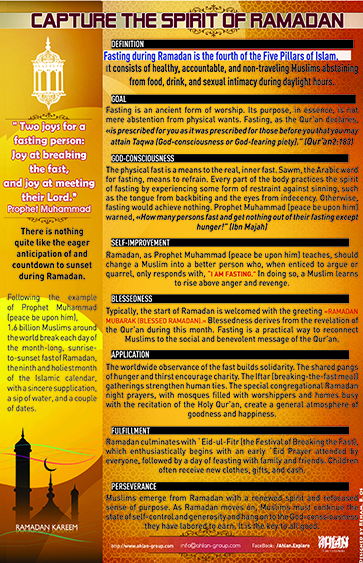Do Muslims believe Islam needs to return to the fundamental teachings of Muhammad (PBUH)? This article explores the answer to this question by highlighting the sources of knowledge for Muslims and the reasons behind the necessity of following Prophet Muhammad’s teachings. It also examines the accepted and rejected forms of innovation in religion, helping the reader understand the Islamic concept of adhering to fundamental teachings. Keep reading for more!
Do Muslims Believe Islam Needs to Return to the Fundamental Teachings of Muhammad?
Yes, Muslims believe in the necessity of returning to the fundamental teachings of Islam delivered by Prophet Muhammad (PBUH) to humanity. These fundamental teachings include:
- The Quran – The last divine message revealed to Prophet Muhammad (PBUH) and preserved till today.
- The Prophetic Traditions (Sunnah) – The Sunnah includes everything narrated from or about the Prophet (PBUH), whether it’s a saying, action, or confirmation.
To accurately understand and practice the Islamic teachings delivered by Prophet Muhammad, Muslim scholars established two sciences based on the rules mentioned in the Quran and Sunnah:
- ‘Uloom al-Hadith (Hadith Sciences) – A unique system of investigation used to test the degree of authenticity of each Sunnah narration. This system determines what is authentic and what is not, defining the legitimacy of actions accordingly. (Is the Islamic text authentic?)
- ‘Usool al-Fiqh (Principles of Jurisprudence) – A methodology of research used to derive rules from Islamic texts. (How to understand the Islamic text?)
Thus, Islam is built on two complementary sources, understood through specific sciences that anyone can learn. This way, the religion remains preserved.
Why Do Muslims Follow the Teachings of Muhammad?
Following the teachings of Prophet Muhammad (PBUH) is a necessity for every Muslim and truth-seeker. Here are some reasons that make this matter of the highest significance:
Following the Prophet Is the Only Trusted Way to Know God’s Religion
Prophet Muhammad (PBUH) is the final and last human means between humans and God’s message. Like all previous messengers, he serves as the channel to let humans know what Almighty God commands. Almighty God describes the sayings of Prophet Muhammad, stating:
“Nor does he speak of his own whims. It is only a revelation sent down ˹to him˺.”
For more about the authorship of the Quran and the evidence on its divinity, refer to this article:
Divine Direct Instruction to Follow Prophet Muhammad (PBUH)
Almighty God directly instructs the necessity of following Prophet Muhammad in the Quran, stating:
“Whatever the Messenger gives you, take it. And whatever he forbids you from, leave it.”
[59:7]
For more about the authorship of the Quran and the evidence of its divinity, refer to this article: Who Wrote The Quran? The Truth Behind The Author of The Quran
Love of Almighty God Is Achieved through Following Prophet Muhammad
The Quran states that following Prophet Muhammad is a test of one’s love for Almighty God:
“Say, ˹O Prophet,˺ ‘If you ˹sincerely˺ love Allah, then follow me; Allah will love you and forgive your sins.’”
[3:31]
Read more: Was Muhammad A Prophet of God?
Religion Depends on Both the Quran and Sunnah
Islamic instructions can only be known by tracing both the Quran and the Sunnah, not just one source. Simply put,
- How can the All-Knowing God direct believers to follow Prophet Muhammad (PBUH) while his traditions are not documented or preserved?
- Or, how can a Muslim know the details of worship, such as prayers, and many other practices that are only known through Prophet Muhammad’s teachings
Read also:
Prophetic Teachings Are Documented and Preserved
Another reason that makes following Prophet Muhammad (PBUH) possible and rational is the documentation and preservation of his traditions—a process that started during Prophet Muhammad’s lifetime. Many companions recorded hadith in written form, such as as-Saheefah as-Sadiqah.
Read more: Hadith Collection – Was Hadith And Sunnah Compiled And Preserved From Corruption?
Thus, following Prophet Muhammad (PBUH) is a divine instruction, a necessity for understanding Islamic teachings, and a means of achieving God’s love.
Does Islam Accept Information Exchange with Others at all Levels?
As ever-green instructions, Islam suffices Muslims in the basics, core beliefs, and principles while setting rules for benefiting from others in matters that change over time and place, governed by higher objectives and laws. Below are examples of areas where Muslims must adhere strictly to fundamental teachings compared to those where these teachings merely regulate the process of adaptation and benefit:
Rejected Innovation in Islam
Muslims are not allowed to adopt innovations in beliefs, acts of worship, or spiritual matters. For instance, they cannot borrow perspectives from Western scholars regarding the soul or the purpose of life, as Islam provides a complete and comprehensive understanding of the unseen aspects of life—exclusively revealed by the All-Knowing God.
Accepted level of information exchange & creativity in Islam
Muslims are permitted to benefit from others in the realm of practical means, such as using technology to simplify educational materials. Additionally, in areas of pure materialistic and non-religious aspects of life, such as medical sciences, innovation and knowledge exchange are acceptable—provided they adhere to Islamic higher objectives and ethical guidelines that Muslim scientists must uphold.
Thus, innovation in religion is not accepted in beliefs, acts of worship, or unseen psychological matters. Prophet Muhammad (PBUH) clarifies this concept, stating:
“Whoever invents (ahdatha) in this matter of ours what is not from it, then it is rejected.”
[Agreed upon]
However, non-religious and materialistic matters are open to creativity in Islam.
For more about rulings of innovation in religion, refer to this article.
Conclusion
To conclude, in answering the question “Do Muslims believe Islam needs to return to the fundamental teachings of Muhammad (PBUH)?”, this article highlights the following points:
- The sources of Islamic teachings are both the Quran and the Prophetic traditions (Sunnah), making them a necessary part of properly following the religion.
- The article also explores the reasons behind the necessity of following the teachings of Prophet Muhammad (PBUH), emphasizing Almighty God’s direct instruction to do so.
- Finally, it distinguishes between accepted and rejected areas of innovation in religion to provide a deeper understanding of why returning to the fundamental teachings of Prophet Muhammad (PBUH) is essential.
Curious to learn more about Prophet Muhammad (PBUH) as the final Prophet of Almighty God to humanity? Start a conversation now for further discussion!













